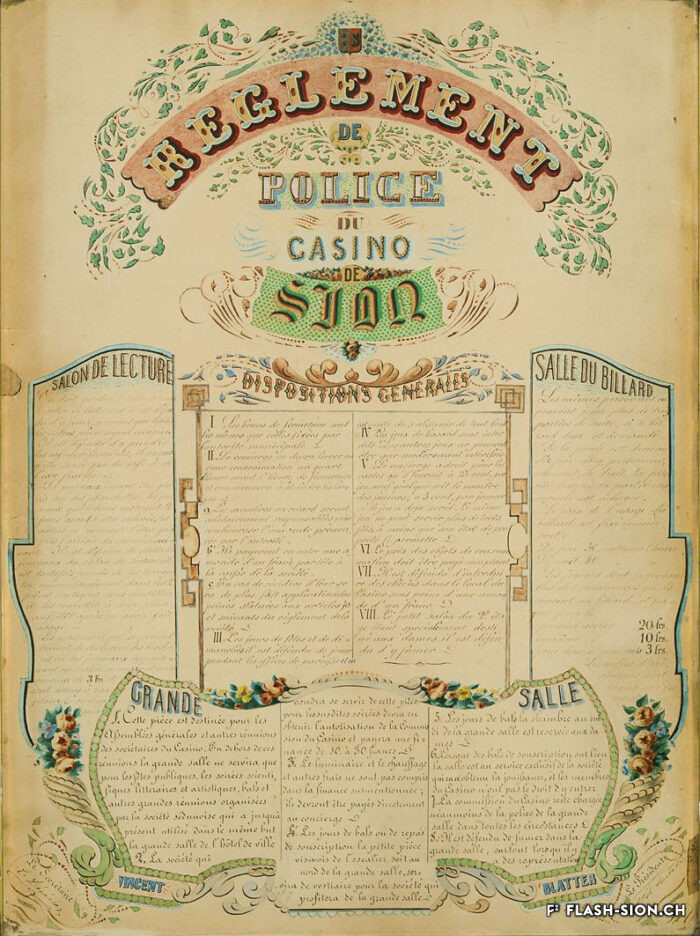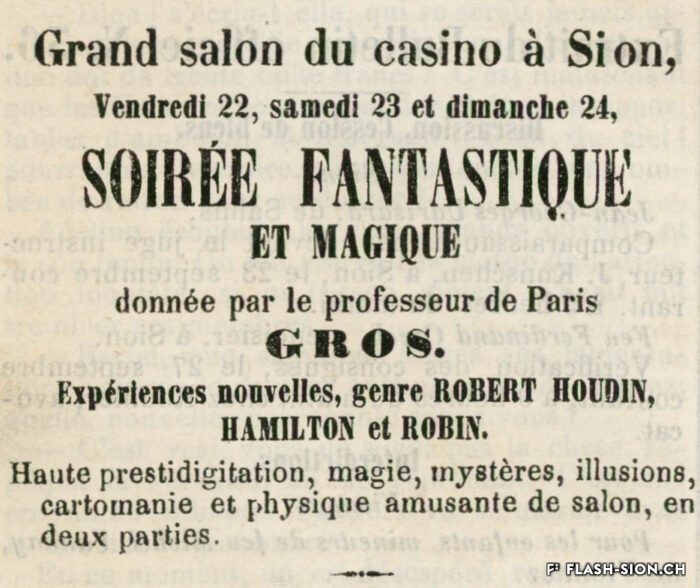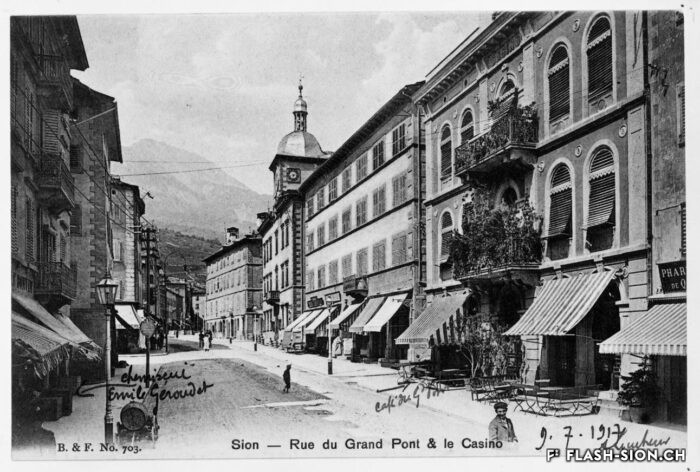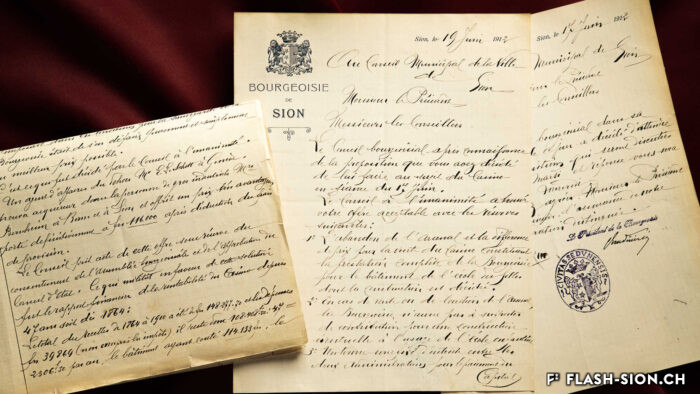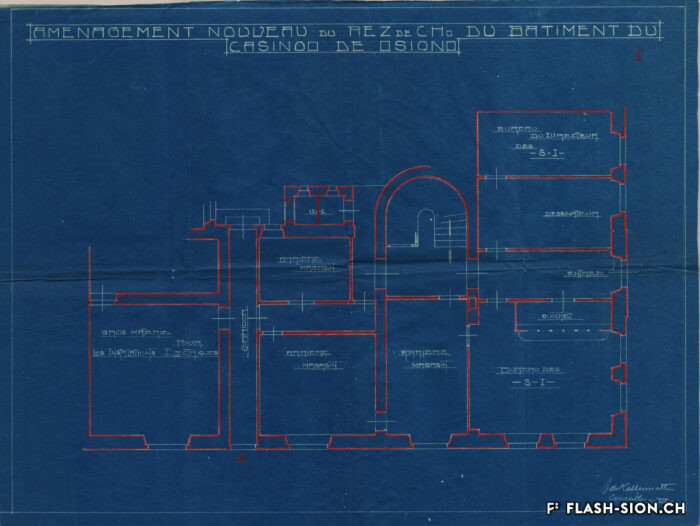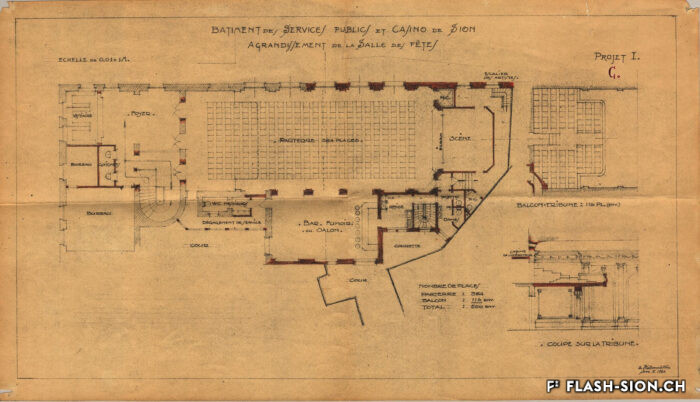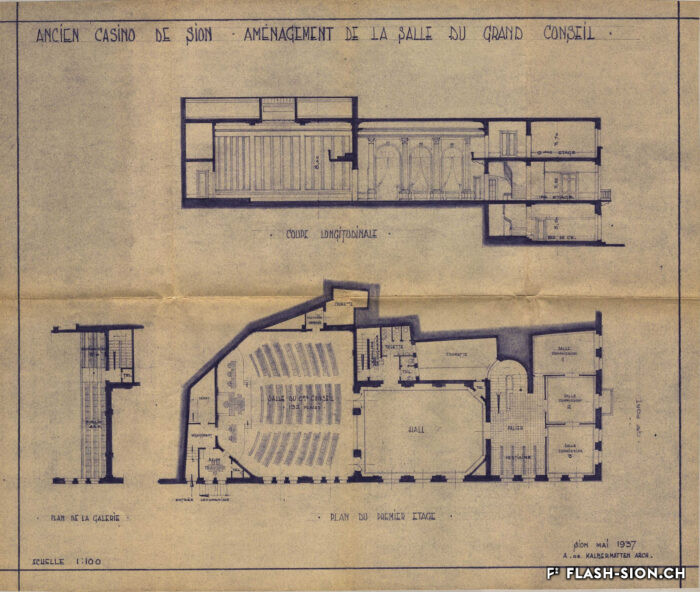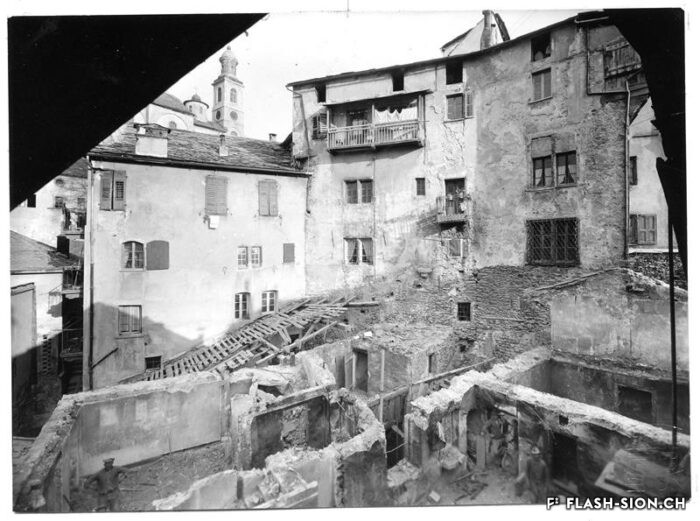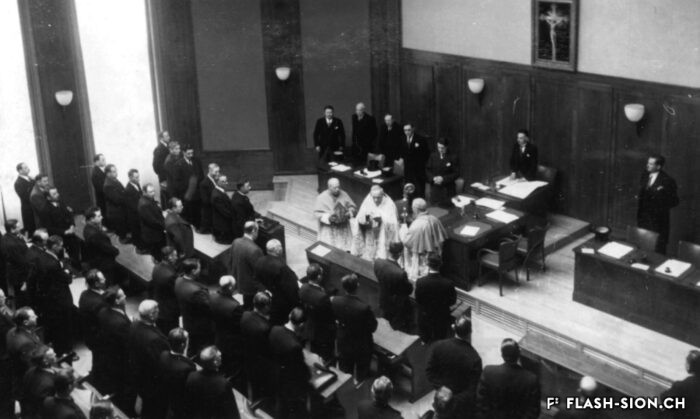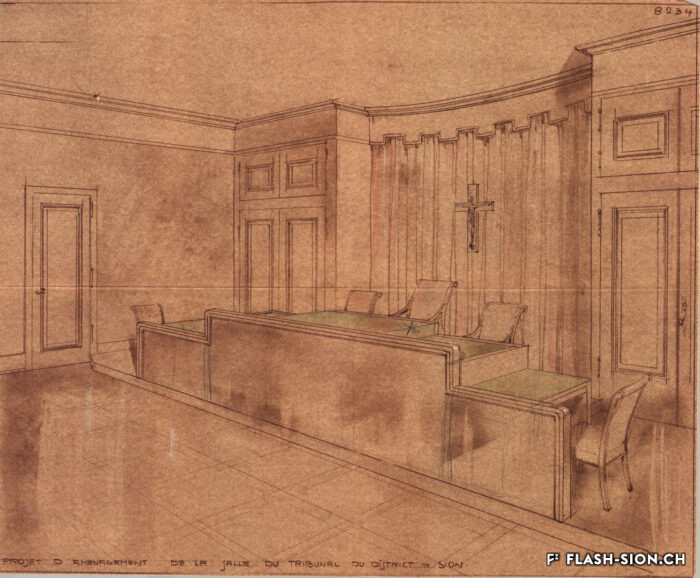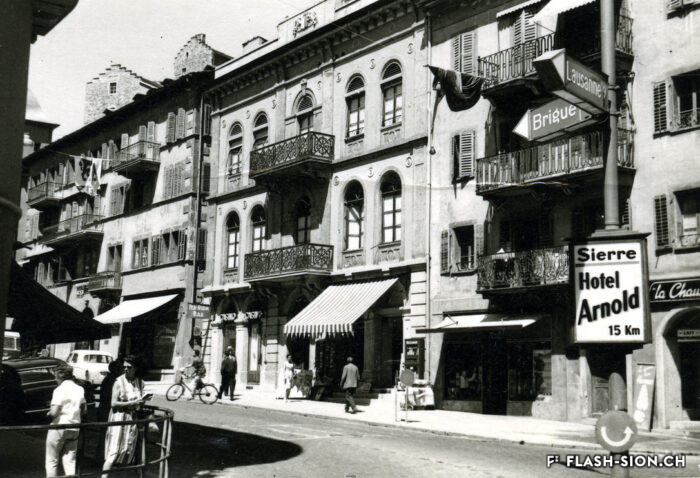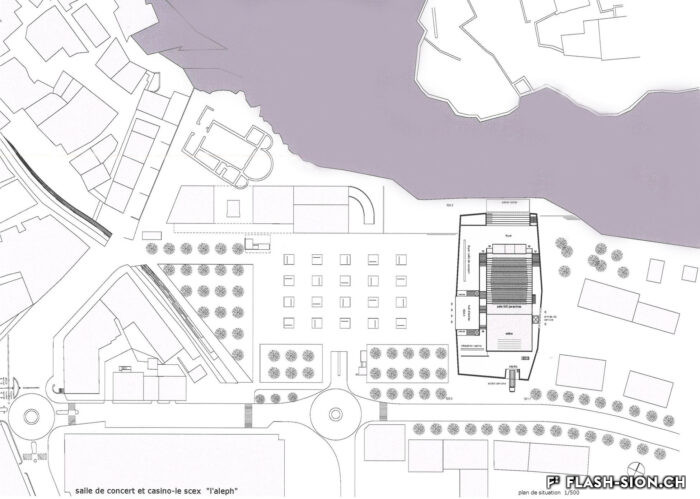Des jeux de société aux jeux politiques
Contrairement à ce que son nom pourrait suggérer, le Casino de Sion n’a jamais hébergé de jeux de hasard sous son toit. Destiné à resserrer les liens de la société sédunoise, l’établissement, représentatif de l’architecte Emile Vuilloud, est construit en 1861 sur décision de la Bourgeoisie de Sion. L’édifice, avec sa grande salle de fête et les différents salons de lecture et de jeux de société, est inauguré en 1865. Parallèlement, la Société du Casino est constituée et un règlement de police strict est adopté. Après presque 40 ans d’existence, la société rencontre de plus en plus de difficultés à rassembler des membres. Elle est dissoute en 1904 et le bâtiment est racheté en 1912 par la Municipalité. En 1924, pour éviter de devoir mettre à disposition, à ses frais, des locaux plus spacieux pour les séances du Parlement valaisan, le conseil communal autorise le Grand Conseil à siéger, à bien plaire, dans la salle du Casino. Rénové et agrandi de 1938 à 1939, le Casino devient le siège permanent du Grand Conseil, excluant définitivement son utilisation parallèle comme salle de fête.
Von Gesellschaftsspielen zu politischen Spielchen
Entgegen seinem Namen sind im Casino von Sitten nie Glücksspiele angeboten worden. Der repräsentative Bau des Architekten Emile Vuilloud ist vielmehr dazu bestimmt, den gesellschaftlichen Zusammenhalt unter den Sittener Bürgern zu festigen und zu pflegen. 1861 beschliesst die Burgergemeinde von Sitten die Errichtung des Gebäudes. Die Einweihung des Casinos mit seinem großen Festsaal und den verschiedenen Salons zum Lesen und für Gesellschaftsspiele findet 1865 statt. Gleichzeitig erfolgt die Gründung der Société du Casino, welche ein strenges Polizeireglement für das Casino verabschiedet. Knapp 40 Jahre nach der Gründung verzeichnet die Gesellschaft jedoch zunehmend Schwierigkeiten, Mitglieder zu werben. Sie wird 1904 aufgelöst und das Gebäude 1912 von der Gemeinde aufgekauft. Um nicht auf eigene Kosten größere Räumlichkeiten für das Walliser Parlament zur Verfügung stellen zu müssen, kommt der Gemeinderat 1924 schliesslich dem Großen Rat entgegen und gestattet ihm, vorübergehend im Saal des Casinos zu tagen. Nach den Renovierungs- und Ausbauarbeiten zwischen 1938 und 1939 wird das Casino schliesslich zum ständigen Sitz des Großen Rates – eine parallele Nutzung als Festsaal wird damit endgültig ausgeschlossen.
From society games to political games
Contrary to what one might think of when considering its name, the Casino of Sion never hosted any gambling activities. The building was erected in 1861 upon approval of the Bourgeoisie of Sion. Well represeting the works of Emile Vuilloud, it aimed at reinforcing the bounds within the community members of Sion. The building was inaugurated in 1865 and consists of a huge hall for celebrations and several salons for reading and playing board games.
The ‘‘Société du Casino’’ was established concurrently and strict police regulations were enforced. Nearly 40 years later it was becoming harder and harder for the society to attract members, so it was dissolved in 1904 and the Municipality bought the building in 1912. In 1924, the town council -to avoid the costs that would have been encured by renting rooms more spacious for the meetings of the Parlement of Valais- gave the Grand Conseil the permission to sit ‘‘à bien plaire’’ (temporarily, so long as the Conseil approves of it) in the hall oft he Casino. It was renovated and extended between 1938 and 1939 and became the permanent seat of the Great Conseil, thus definitely excluding the possibilities to concurrently use it as a banquet hall.
Dai giochi di società ai giochi politici
Contrariamente a quanto potrebbe suggerire il nome, il Casinò di Sion non ha mai ospitato i giochi d’azzardo sotto il suo tetto. Destinato a rafforzare i legami della società di Sion, l’edificio rappresentativo dell’epoca, fu progettato dall’architetto Emile Vuilloud nel 1861 per decisione della borghesia di Sion. L’edificio con il grande salone delle feste e le varie sale di lettura e di giochi da tavolo, venne inaugurato nel 1865. Allo stesso tempo venne costituita la “Società del Casinò” e furono adottati severi regolamenti di polizia. Dopo quasi 40 anni di esistenza, la società trova sempre più difficoltà a riunire i membri. Fu sciolta nel 1904 e l’edificio fu acquistato nel 1912 dal Comune. Nel 1924, per evitare di dover fornire, a proprie spese, locali più spaziosi per le sedute del Parlamento vallesano, il Consiglio comunale autorizzò il Gran Consiglio a riunirsi, a suo piacimento, nella sala del Casinò. Ristrutturato e ampliato dal 1938 al 1939, il Casinò divenne la sede permanente del Gran Consiglio, escludendo definitivamente il suo utilizzo parallelo come salone delle feste.
